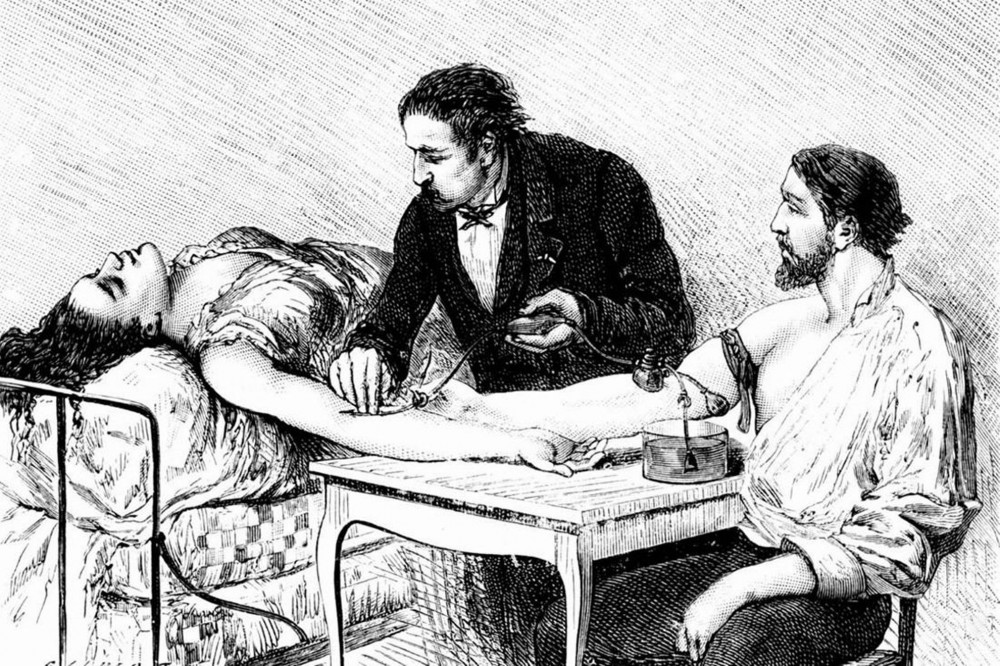
The development of blood transfusion in Russia began in the XIX century due to the revived worldwide interest in the study and application of this procedure after a series of prohibitions in Europe two centuries earlier. The purpose of the article is to systematize and analyze Russian initiatives in hemotransfusion in the XIX century, which include both well-known facts and insufficiently studied and new evidence. The following stages in the development of blood transfusion are determined: the initial period in 1830—1840, in which the first attempts were made to use blood transfusion in medical practice, and the prospects of this method were comprehended; in 1860—1870 it was a period of a surge of interest in blood transfusion when fundamental physiological studies were conducted and a significant number of cases of transfusions were carried out. The peak of interest in hemotransfusion in 1873—1875 was caused by the intensification of military operations in the international arena and the related needs of military field surgery; the activities of J.A. Roussel and F.F. Gesellius to promote their blood transfusion devices in Russia, which included public demonstrations and experimental clinical trials; active study of blood transfusion in European medical science. In the 1880s, the popularity of blood transfusion began to decline sharply due to the lack of substantiated results confirming the safety of its use in clinical practice.
Source: Maria S. Sergeeva, Evgeniya L. Panova (2023). Russian Initiatives in the Study and Practical Application of Blood Transfusion in the XIX century. Bylye Gody. 18(3): 1159-1169
Source web-site: https://bg.cherkasgu.press/journals_n/1693568794.pdf
Number of views: 1823